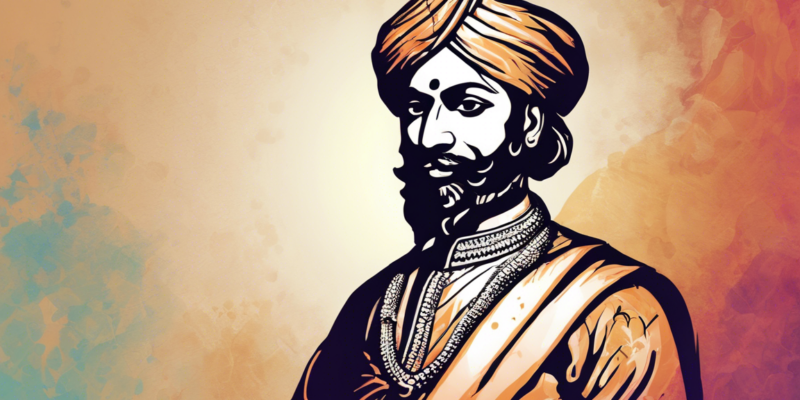
Exploring the Legacy of Chhatrapati Shivaji Maharaj
Chhatrapati Shivaji Maharaj, also known as Shivaji Bhosale, was a legendary Indian warrior king who founded the Maratha Empire in the 17th century. His legacy continues to inspire millions of people in India, especially in the state of Maharashtra, where he is venerated as a deity-like figure. Shivaji Maharaj’s life and achievements are a testament to his courage, military genius, and visionary leadership. Let’s delve deeper into the legacy of this iconic ruler and explore the impact he has had on Indian history and culture.
Early Life and Rise to Power
Born in 1630 in the hill fort of Shivneri, Shivaji Maharaj was the son of Shahji Bhosale, a Maratha general, and Jijabai. From a young age, Shivaji exhibited leadership qualities and a keen interest in military tactics. He began his military career by establishing small guerrilla bands to challenge the oppressive rule of the Adil Shahi Sultanate and the Mughals.
Establishing the Maratha Empire
Shivaji Maharaj is best known for his guerrilla warfare tactics, innovative military strategies, and efficient administration. He established a strong naval presence along the Konkan coast and built a well-organized army comprising infantry, cavalry, and navy. His crowning achievement was the establishment of the Maratha Empire in 1674, with Raigad as its capital.
Military Campaigns and Fortifications
Shivaji Maharaj’s military campaigns were marked by swift and decisive actions against larger and more powerful enemies. He defeated the Bijapur Sultanate, the Mughals, and the Portuguese through a combination of diplomacy, alliances, and military prowess. Shivaji also built a network of strategically located forts across the Western Ghats to defend his territory and launch surprise attacks.
Legacy and Impact
Shivaji Maharaj’s legacy extends beyond his military achievements. He was a champion of religious tolerance, social justice, and good governance. He promoted the welfare of his subjects, abolished unjust taxes, and established a council of ministers to advise him on state matters. Shivaji’s vision of a strong and united India inspired future freedom fighters and nationalist leaders during the independence movement.
Cultural Influence and Iconography
The legacy of Shivaji Maharaj is deeply ingrained in Indian culture and society. He is often depicted in paintings, statues, and popular culture as a symbol of courage, valor, and patriotism. His iconic image riding a horse, with a sword in hand, epitomizes the spirit of resistance against tyranny and injustice.
FAQs about Chhatrapati Shivaji Maharaj
-
What is Shivaji Maharaj famous for?
Shivaji Maharaj is famous for founding the Maratha Empire and pioneering guerrilla warfare tactics against the Mughals and other rulers in India. -
Where is Shivaji Maharaj’s fort located?
Shivaji Maharaj’s primary fort was located in Raigad, which served as the capital of the Maratha Empire. -
What was Shivaji Maharaj’s impact on Indian history?
Shivaji Maharaj’s impact on Indian history was profound, as he laid the foundation for Maratha power in India and inspired future generations of freedom fighters. -
How did Shivaji Maharaj promote religious tolerance?
Shivaji Maharaj promoted religious tolerance by treating people of all faiths with respect and safeguarding their rights to worship freely. -
What is the significance of Shivaji Maharaj’s coronation as Chhatrapati?
Shivaji Maharaj’s coronation as Chhatrapati symbolized his assertion of independence and sovereignty over his kingdom, elevating him to the status of a Hindu emperor.
In conclusion, the legacy of Chhatrapati Shivaji Maharaj is a source of inspiration and pride for Indians across the country. His military achievements, administrative reforms, and visionary leadership continue to shape India’s cultural and historical landscape. Shivaji Maharaj’s story serves as a reminder of the enduring values of courage, justice, and resilience that continue to resonate with people today.
